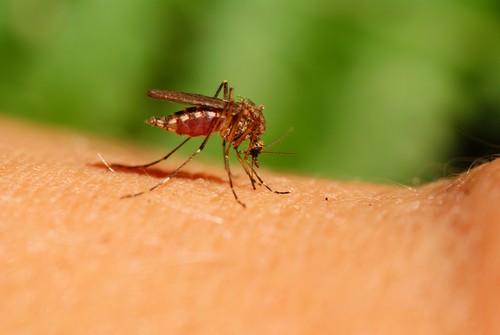
The Zika virus that is transmitted by mosquito bites continues to spread rapidly in Central and South America. Most recently the Bahamas was added to the list where Zika is being actively transmitted. Puerto Rico has already had almost 9,000 people infected with Zika.
In the U.S., there have been hundreds of cases of Zika, but in the beginning they were all people who caught the virus from infected mosquitoes while they were visiting other countries. Recently cases of local transmission in two Florida locations started appearing: first in the Wynwood neighborhood of Miami, and then Miami Beach. The Centers for Disease Control and Prevention is expecting the virus to start showing up in other areas.
Part of the difficulty in containing this virus is that only 20% of infected people show any symptoms, which most commonly include fever, rash, joint pain, and red eyes. So a person can become infected during their travels, show no symptoms, be bitten when they come back and pass the virus on to the mosquito, which can then transmit it when it bites someone else.
If a pregnant woman becomes infected, the virus can cause various birth defects, including microcephaly, a condition where the baby’s head is abnormally small. Recently the first case of sexual transmission of the virus from a person that was infected but showed no symptoms was documented. The Food and Drug Administration has new guidelines that all blood donated in the U.S. must be screened for Zika.
Take precautions to avoid being bitten by mosquitoes, especially when you travel to Zika areas. Visit cdc.gov for more information, and ask us about mosquito services we provide.






